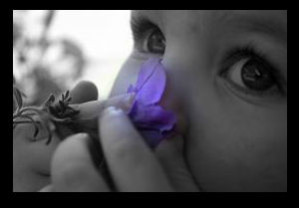 I lost nearly all my sense of smell when I was eight. One day my socks itched and the next day I was allergic to seemingly everything including “all grasses in the world,” the grim doctor intoned, putting the kybosh to any fantasies of living sneeze-free in say Senegal or Iceland.
I lost nearly all my sense of smell when I was eight. One day my socks itched and the next day I was allergic to seemingly everything including “all grasses in the world,” the grim doctor intoned, putting the kybosh to any fantasies of living sneeze-free in say Senegal or Iceland.
I didn’t realize what I was missing until I visited my cousin that summer. She pulled a shirt from the laundry, pressed it to her nose and said, “Ahhh, Mom.” People have smells? I thought.
This loss has its advantages. Like one summer on San Padre Island my friends and I saw a dead javelina by the side of the road. I investigated. I had never seen a live javelina. My friends wanted to see too, but they stood across the road waving the air. I peered into the guts and examined the maggots. I didn’t smell a thing.
But for the aspiring novelist, an impaired nose is a disadvantage. Everyone knows that smell is the atavistic sense. Conjure the scent of a lover or a sewer and you have the reader by the, well, nostrils.
Biologically speaking, the other four senses are timid—or rational—take your pick. Their data makes a pit stop at the thalamus. The thalamus sorts the information into categories: important or not. Only then does the information travel to the brain for interpretation. Odor goes straight to the limbic brain, the primitive brain, where instinct, rage and desire live.
My novel should be filled with odor. It takes place by a chemical factory that manufactures mothballs and brake linings and paint and rubber sealants. It’s a love story. People smell each other. There are lots of highways involved. And one garden.
I have been reduced to interviewing friends. Is there a constant smell underlying everything, a smell of minerals and earth and air? Do men smell different than women? Can you smell traffic? Does heavy traffic smell different than light? How close to a flower do you have to be to smell it? When you are in a garden, do you smell all the flowers at once, a mélange of scents? Or is each fragrance distinct?
Amy Bloom opens her short story “Bad Form” this way: “I feel my baby’s arms around my neck. Hidden wrists, flesh the color and feel of white tea roses, the rising scent of warm corn bread.” I love that. I have sniffed so many baby heads trying to determine if any or all of them smell like corn bread. And…nothing.
A few smells still penetrate: bacon, dust, cat pee, and mothballs. Occasionally, pine and very strong coffee. Dust is the worst. In fall, I can smell seemingly infinite gradations of dust—heavy, dark in the curtains, fluttery on the floor, thudding, ghastly in the pillows, gritty on the porch. This is a time of great industry in our house when everything is washed repeatedly.
Then I read that losing one’s sense of smell is a sign of Alzheimer’s. I made an appointment with the doctor. He gave me a prescription, a nose spray, nothing exotic. By day two, I could smell the spray, faintly. Manmade, definitely, but sweet. Three days in, I could smell vanilla. Heaven. And overripe bananas. Yesterday, day four, a man sat next to me on the T, and I could smell him. It was not a good smell, no, definitely not. I inhaled. I have ridden the T for many years, but not a single scent ever penetrated. I could smell this man. Sweat, tangy, and something deeper, not dirt, but a robustness coupled with a quality of age. I was in love.
I wondered at my ability to describe odors. Had my nose worked, dimly, all along? Had my interviewees, the ones with great noses, given such vivid descriptions that I applied their words to these new scents? Did I remember from when I was a girl? I confess I didn’t care a whit. I just wanted to smell—peonies, paint cans, Route 2, oranges. My husband at last. And my eight-year-old’s dear head. And to write.




10 comments